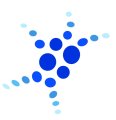
WS 2013/2014
Computational Neuroscience:
Models of Neural Systems
Richard Kempter and Benjamin Lindner


|
WS 2013/2014Computational Neuroscience:
|

|
Dates: Weekly, from 21-October-2013 to 15-February-2014.
Location: Bernstein Center for Computational Neurosciences Berlin, Haus 6, Philippstr. 13.
Times:
Theoretical Lectures (2 SWS, 2 ECTS): Mondays from 10:00h to 11:30h in the lecture hall 102
Experimental Lectures (2 SWS, 2 ECTS): Mondays from 16:00h to 17:30h in the lecture hall 102
Computer Practical (2 SWS, 4 ECTS): Tuesdays from 18:00h to 19:30h in the computer pool (Haus 2, east wing, room 0.10); first tutorial on 22-October-2013
Computer Practical: Extended introduction on Mo 28-Oct-2013, 14-16h; Mo 4-Nov-2013, 14-16h.
Analytic Tutorials (2 SWS, 4 ECTS): Thursdays, 8:30-10:00h in
the BCCN seminar room
Target Group: Students of Computational Neuroscience, Medical Neuroscience, Biology, Biophysics, Physics, Mathematics, and Computer Science.
Requirements: Basic knowledge in Mathematics (e.g. calculus, differential equations, algebra) and a higher programming language (e.g. C, C++, Python, MatLab).
Aims and Topics: Participants should learn basic concepts, their theoretical foundation, and the most common models used in Computational Neuroscience. The Module ''Models of Neural Systems'' also provides some neurobiological knowledge and explains the relevant theoretical approaches as well as the findings resulting form these approaches so far. After completing the Module, participants should understand strengths and limitations of the different models. Participating students will learn to appropriately choose the theoretical methods for modeling neural systems. They will learn how to apply these methods while taking into account the neurobiological findings, and they should be able to critically evaluate results obtained. Participants should also be able to adapt models to new problems as well as to develop new models of neural systems.
Here is the full description of the master modules Models of Neural Systems / MB-B10 and the bachelor module Theoretische Biologie.
People and Contents:
Theoretical Lectures
by
Richard Kempter
and
Benjamin Lindner.
Analytic Tutorials
by
Tiziano D'Albis and Alexandra Krusche.
Experimental Lectures
by Vanessa Casagrande and Julia Schaeffer.
Computer Practical
by
Nikolay Chenkov, Robert Mayer, Tiziano Zito, and Sven Blankenburg.
Moodle:
Further details are available at this moodle page.
Analytic Tutorials: To obtain a course certificate for 4 ECTS ("Schein") that certificates a successful participation, solutions to the weekly assignments must be turned in on Mondays before the beginning of the lecture, and at least 75% of the points in the exercises must be obtained. An active participation in the tutorials is also required.
Computer Practicals: To obtain a course certificate ("Schein" 3 or 4 ECTS) that certifies a successful participation, solutions to the weekly assignments must be turned in on the day preceding the computer practical, and on average at least 75% of the points in the exercises must be obtained. Every student must submit his/her own solution. A solution to an assigment can be generated by groups of 2 students (and the cooperation partner must be mentioned), but a particular pair of students can submit a solution to only one assignment.
In addition to the weekly tutorials, the results of a programming project must be summarized in a written proposal and presented in an oral talk on Tuesday, Feb 11, 2014 (18-20h). The presentations will take place in the BCCN lecture hall.
Module Examinations: Oral exam (graded); certificates of successful participation in the tutorials and/or practicals is a prerequisite for the oral exam. Exam days are 2nd and 3rd of April 2014. The exam should be taken at the end of the semester but has to be taken latest by the end of the semester following the one of obtaining the tutorial certificates. To prepare for the exams, there will a special meeting of students and examiners on 10.02.2013 at 11:30h at the BCCNB.
Recommended reading:
P. Dayan and L.F. Abbott (2001) Theoretical Neuroscience. MIT Press, Cambridge, Massachusetts.
E. M. Izhikevich (2007) Dynamical Systems in Neuroscience: The Geometry of Excitability and Bursting. MIT Press, Cambridge, Massachusetts.
Johnston, Wu (1995) Foundations in Cellular Neurophysiology, MIT Press, Cambrigdge, Massachusetts.
Advanced/additional reading:
M. F. Bear, B. W. Connors, M. A. Paradiso (2007) Neuroscience: Exploring the Brain, Lippincott Williams & Wilkins, Baltimore, Maryland.
Thomas P. Trappenberg (2002) Fundamentals of Computational Neuroscience. Oxford University Press, Oxford, UK.
P. Churchland and T. Sejnowski (1994). The Computational Brain. MIT Press, Cambridge, MA.